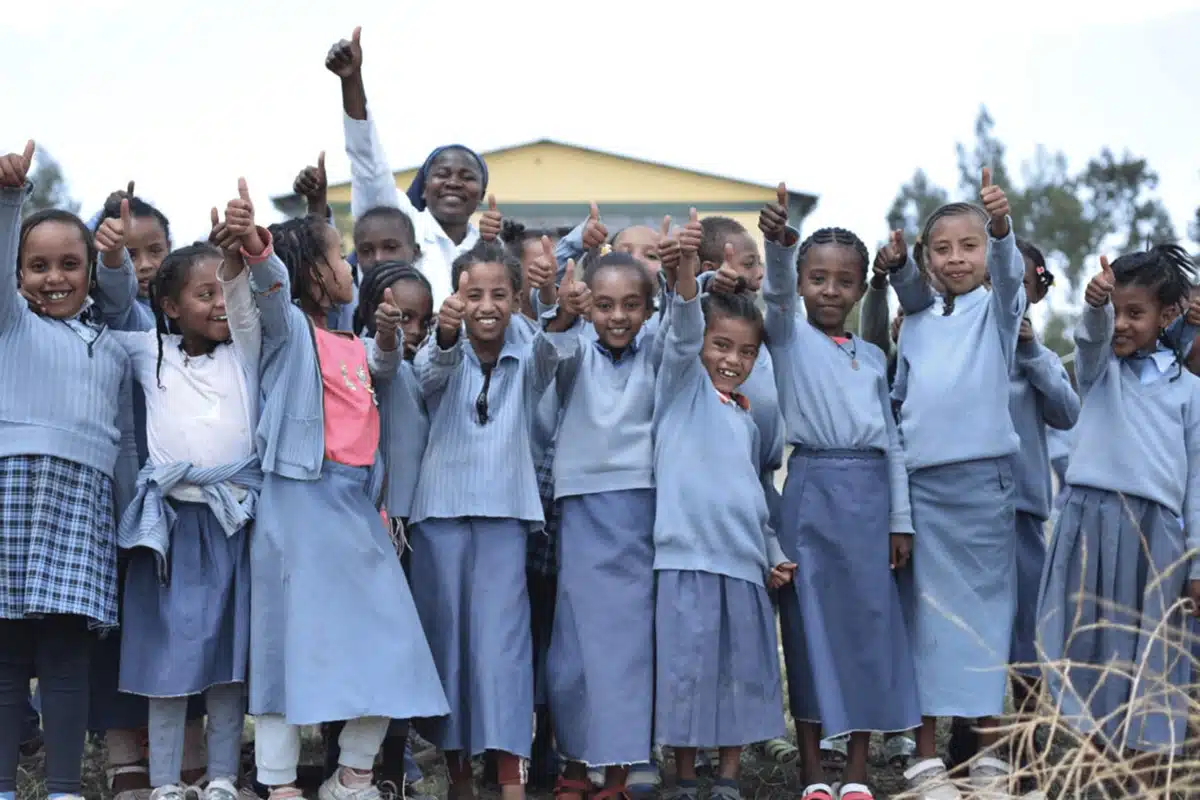Education has the power to change the world, to build more just and egalitarian societies. But this is only possible when education is understood as a fundamental right and not as a privilege of the few. Today, despite progress, millions of girls and women are victims of the systematic denial of the right to education, which leads to the perpetuation of situations of dependency and inequality.
“A child, a teacher, a book and a pen can change the world. Education is the only solution. These words were spoken by Malala Yousafzai before the United Nations Assembly. At only 17 years old, Malala became the youngest person in history to receive the Nobel Peace Prize, for her tireless defence of the Right to Education for children all over the world and, in particular, for women and girls. A right for which she even risked her own life. In her hometown, Pakistan, Malala suffered an attack in 2012 after opposing the Taliban edict that banned girls from going to school.
Much work to be done
Like Malala, millions of women in every corner of the world daily defy obstacles of all kinds that impede their access to education, to the path that leads to a better future, to their professional and personal fulfilment. However, these obstacles persist especially in the least developed countries where, according to UNESCO estimates: “129 million girls are out of school: 32 million of them of primary school age and 97 million of them of secondary school age”. This translates into 50% of women in these countries not being able to read and write.
129 million girls are out of school: 32 million of primary school age and 97 million of secondary school age.
Gender discrimination undermines women’s educational prospects in many ways. Early marriage and domestic work lead many girls and young women to drop out of school and give up their dreams and expectations for the future, often because of family imposition or economic hardship. Similarly, sexual harassment in public spaces is another risk factor that confines many women to their homes, stifling their voices and severely limiting their ability to contribute to society.
The work of Parentes Foundation
At Parentes Foundation, our main objective is to promote the right to education for the most vulnerable population. To this end, we collaborate with institutions in different countries through projects that guarantee access to inclusive and quality education. In this sense, many of our projects are specifically aimed at facilitating access to school for girls in places where their right to education is at risk. Similarly, we collaborate with the development of initiatives to improve the employability of women, favouring their incorporation into the labour market and their economic independence.
Parentes Foundation promotes cooperation projects such as “Maintenance and study aids in 6 schools in Pakistan” or the project “Technical-professional education for young women in Bolivia”. The first, carried out in collaboration with the Jesús y María Congregation, has managed to provide 6 schools in the Punyab region with scholarships for students in vulnerable situations, scholarships for teacher training and computer equipment. As for the second initiative, Parentes Foundation has supported the work of the CEFIM Technical Institute, a technical training centre in gastronomy that offers training to young migrant women from rural areas of Bolivia and to low-income women from the cities of La Paz and El Alto.
Education is the most effective lever for change to achieve a better world, the most effective tool to break the cycle of poverty, reduce inequalities and develop the maximum potential of each person. At Parentes Foundation we work to achieve access to education for vulnerable women, to provide them with the resources they need to find their own voice and become agents of change, protagonists in the construction of a better world.
